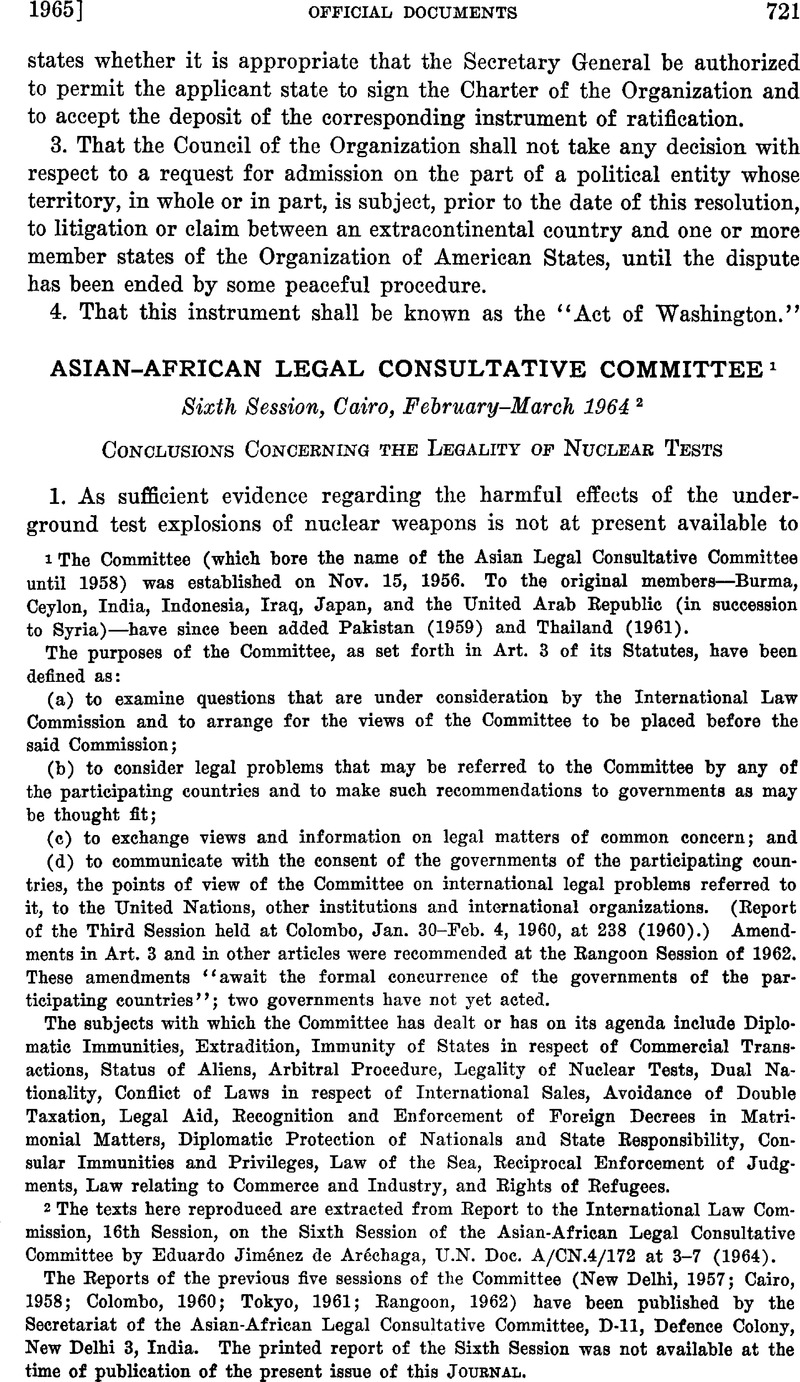No CrossRef data available.
Published online by Cambridge University Press: 28 March 2017

The Committee (which bore the name of the Asian Legal Consultative Committee until 1958) was established on Nov. 15, 1956. To the original members—Burma, Ceylon, India, Indonesia, Iraq, Japan, and the United Arab Republic (in succession to Syria)—have since been added Pakistan (1959) and Thailand (1961).
The purposes of the Committee, as set forth in Art. 3 of its Statutes, have been defined as:
(a) to examine questions that are under consideration by the International Law Commission and to arrange for the views of the Committee to be placed before the said Commission;
(b) to consider legal problems that may be referred to the Committee by any of the participating countries and to make such recommendations to governments as may be thought fit;
(c) to exchange views and information on legal matters of common concern; and
(d) to communicate with the consent of the governments of the participating countries, the points of view of the Committee on international legal problems referred to it, to the United Nations, other institutions and international organizations. (Report of the Third Session held at Colombo, Jan. 30-Feb. 4, 1960, at 238 (I960).) Amendments in Art. 3 and in other articles were recommended at the Eangoon Session of 1962. These amendments "await the formal concurrence of the governments of the participating countries"; two governments have not yet acted.
The subjects with which the Committee has dealt or has on its agenda include Diplomatic Immunities, Extradition, Immunity of States in respect of Commercial Transactions, Status of Aliens, Arbitral Procedure, Legality of Nuclear Tests, Dual Nationality, Conflict of Laws in respect of International Sales, Avoidance of Double Taxation, Legal Aid, Eecognition and Enforcement of Foreign Decrees in Matrimonial Matters, Diplomatic Protection of Nationals and State Responsibility, Consular Immunities and Privileges, Law of the Sea, Reciprocal Enforcement of Judgments, Law relating to Commerce and Industry, and Rights of Refugees.
2 The texts here reproduced are extracted from Report to the International Law Commission, 16th Session, on the Sixth Session of the Asian-African Legal Consultative Committee by Eduardo Jimenez de Arechaga, U.N. Doc. A/CN.4/172 at 3-7 (1964).
The Reports of the previous five sessions of the Committee (New Delhi, 1957; Cairo, 1958; Colombo, 1960; Tokyo, 1961; Rangoon, 1962) have been published by the Secretariat of the Asian-African Legal Consultative Committee, D-ll, Defence Colony, New Delhi 3, India. The printed report of the Sixth Session was not available at the time of publication of the present issue of this JOURNAL.